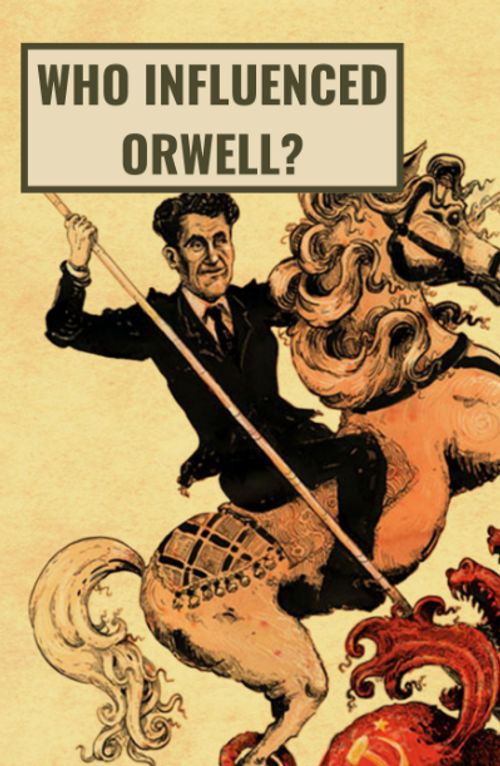The thinker who influenced George Orwell
May 26, 2022 · 2 mins read
0
Share

Introduction. M. D. Aeschliman, a professor at Boston University, dug into George Orwell's intellectual influences and found a forgotten name: G.K. Chesterton. He writes: "George Orwell began his literary career as a disciple of G. K. Chesterton." Find out more! 👇
Save
Share
Orwell's first article. George Orwell's first ever published essay came out in Chesterton's magazine, G.K. Weekly. Orwell famously said: "What England needed was to follow the kind of policies in Chesterton’s G.K.’s Weekly." What are these policies? In a word: Distributism.
Save
Share
What is distributism? Aeschliman describes it as "anti-imperialist Little England policies." Distributism claims that both capitalism and socialism concentrate power - capitalism in Big Business, and socialism in Big Government. The ideal setup distributes power locally instead.
Save
Share
Aeschliman: "As a teenager, Orwell gave someone Chesterton’s novel Manalive. Orwell also loved Chesterton’s Father Brown detective stories." Father Brown is a priest detective - the plot is interspersed with existential musings. Manalive explores the theme of "holy fools."
Save
Share
Both Orwell and Chesterton loved Dickens. Aeschliman: "Orwell’s own longstanding interest in Dickens, evident in his substantial 1939 essay on Dickens, is explicitly influenced by Chesterton, who wrote 2 substantial books on Dickens and is perhaps his greatest commentator."
Save
Share
In Dickens, Orwell found a “quasi-instinctive siding with the oppressed against the oppressor." Dickens, Orwell wrote, was basically "a Bible-Christian." Orwell wished to restore in society a "religious attitude." Chesterton aimed at a similar goal in his books.
Save
Share
But there were some important differences between Chesterton and Orwell too, which led Orwell to break away later in his career. For Orwell, Christianity was "largely discredited" post enlightenment. Yet he was haunted by a feeling that religion is a "psychological necessity."
Save
Share
Aeschliman writes that Orwell wanted to enjoy the "fruits of centuries of Christian civilization" without caring for the religious roots of these fruits. Chesterton worked to "restore those roots, via popular but also powerfully philosophical works such as The Everlasting Man."
Save
Share
Jay Corrin: "Christian values guided the ordinary, decent people that Orwell so honored. Likewise, Orwell’s notion of socialism, grounded on the principle of equality and respect for the individual, can also be linked to the basic Judeo-Christian virtues of decency and justice."
Save
Share
Bottom line. Orwell warned against totalitarian societies, but was too heavily influenced by enlightenment to accept Chesterton's alternative: local, distributed, faith-based communities. People do need ideas to build a life on; for Chesterton, religion still held the best ideas.
Save
Share
0